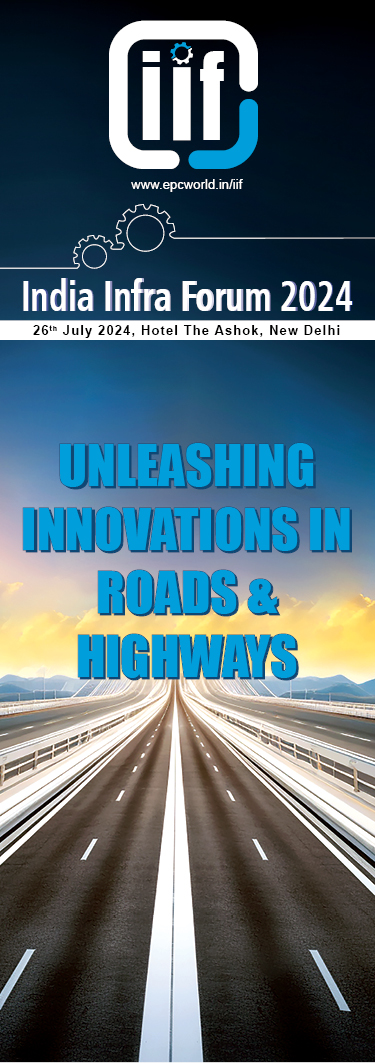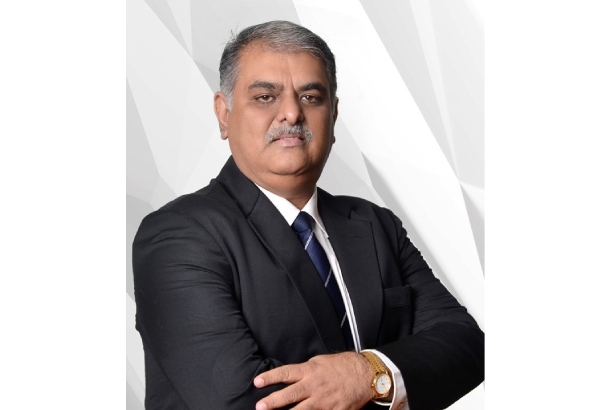With growing urbanization, India is poised to be one of the largest metro hubs across the globe, says Uday Sampat, VP & Head, Sales & Marketing, Distribution Solutions, Electrification Business, ABB India
What measures are in place to ensure sustainability and eco-friendly practices in metro projects?
Metros in India have already taken the first strides towards mitigating their carbon footprint and we expect this to even garner more pace. Metro rail corporations in almost all cities are adopting renewable energy on a large scale for the purpose of reducing their operational costs while ensuring sustainability. ABB always has been a pioneer in providing solutions for renewables infrastructure and continues to contribute to the greener landscape of our metros with its state-of-the- art product portfolio which includes Vacuum Circuit breakers, Relays and LV boards. ABB’s best in class technologies for metro projects, facilitate seamless and comfortable power distribution in metro systems, enhancing the commuting experience for passengers. ABB India has also been instrumental in providing electrification solutions to 13 metro rail projects across India, contributing to the upgrade of existing transport infrastructure.
With India’s focus on sustainable public transit, metros play a crucial role in improving quality of life and supporting social and economic development in urban areas. ABB India’s commitment to sustainability is evident in its provision of various eco-friendly technologies for metro systems, aligning with India’s carbon-neutrality goals. Some ABB electrification technologies provided to Indian metros include Low Voltage Switchboards, Medium Voltage Panels, and Lighting Distribution Boards, all designed to ensure reliability, safety, and efficiency. ABB’s intelligent smart distribution technology further enhances energy efficiency and cost-effectiveness in metro operations, promoting sustainability in urban transportation infrastructure.
How is technology being integrated to enhance the efficiency and convenience of metro services?
India has seen a robust growth and expansion in the urban transport space with the metro network reaching out to Tier-II cities as well. Power distribution systems are one of the key areas impacting Metro performance. One major evolution is the traction technology shift from conventional 25kV AC systems to 750VDC systems as per the ‘passenger per hour’ requirement. DC traction technologies will play a key role in India specifically in heavily populated Tier-II cities. Also, the adaptation in various power distribution systems from AIS to GIS has added lot of flexibility to construct Metro Stations with compact footprint, enabling efficient substation designs. Moreover, these power distribution equipment are inherently tested with stringent Internal Arc Withstand tests as per standards, coupled with state-of-the-art numerical relays ensuring utmost safety to the equipment, operator, and commuters at large. ABB has always been one of the key suppliers for power distribution and automation systems to the rail metro sector thus contributing towards the overall safety & convenience of commuters.
What role do emerging technologies play in shaping the future of Metro Rail in India?
Technology development will always remain at the core of every growing sector in India.Metro, for example has itself seen changes from the conventional AC systems to DC Systems based on the Passenger per hour requirement. All upcoming Tier-II metros are now being planned on the DC traction system taking into account life cycle costs towards the same. Though the DC traction systems costs a bit more in terms of initial CAPEX, the ‘Make in India’ scheme seems promising in enabling localisations of key traction equipment. ABB has always been instrumental in developing & localising technologies in India to enable ease of sourcing and deployment. One such example is ABB’s DC traction portfolio where it has taken big strides towards localizing the key DC Traction equipment. Furthermore, there are multiple possibilities to enhance the performance of the protection systems to make the substations unmanned. One such key breakthrough is ABB’s Centralized protection and control (P&C) which is a novel approach, where all P&C functionality has been centralized into one single device on the substation level. With this approach, you gain the ability to protect and control a wide variety of utility and industrial applications from a single device, resulting in convenient station-wide visibility, minimal engineering, and easy and cost-efficient process management.
Another area of technological deployment could be implementation of Current & Voltage sensors in MV Switchgear Systems which could reduce considerable CO2 footprint in the large-scale metro systems. While one very important thing to be kept in mind is that we need to take care of the customer data effectively and hence Cyber security plays a crucial role during the protection systems deployment. As systems become digitalized, ABB significantly focuses on cybersecurity standards to safeguard against potential threats. Intelligent electronic devices, particularly relays, are vital components in communication systems. ABB ensures that all relays comply with international standards such as NERC CIP and BREW for cybersecurity, protecting against unauthorized modification or destruction of information systems, whether accidental or intentional.
What investment opportunities exist in the Metro Rail sector, particularly in the context of emerging technologies and expansion plans?
Metro rail systems have emerged as a viable and environmentally-friendly solution to address urban India’s traffic congestion and vehicular pollution issues. These projects significantly enhance the efficiency of urban living while reducing reliance on fossil fuel- powered vehicles. Presently, there are approximately 370 kilometers of operational metro rail tracks spread across eight Indian cities. Establishing a metro rail project requires substantial capital investment and necessitates the utilization of cutting-edge locomotive engineering and technology. Consequently, this has created opportunities for both domestic and international companies in a previously underdeveloped infrastructure sector. With growing urbanization, India is poised to be one of the largest metro hubs across the globe. India is set to increase its metro network from an existing operational 851 km to a planned 1,985 km over the next five to seven years. This will take India’s investment in metros to approximately 7 billion rupees. By virtue of this, lot of supplier capacity enhancement is also the need of the hour to meet these growing demands. ABB has been one of the key suppliers to metro Rail industry ranging from the SF6 based Switchgears supplied to DMRC’s 1st phase project to the 25kV GIS for the latest Delhi-Meerut RRTS project. Furthermore, ABB is also a firm believer of the Make in India programme and has localized their DC traction portfolio systems in India enabling ease of sourcing and deployment.






